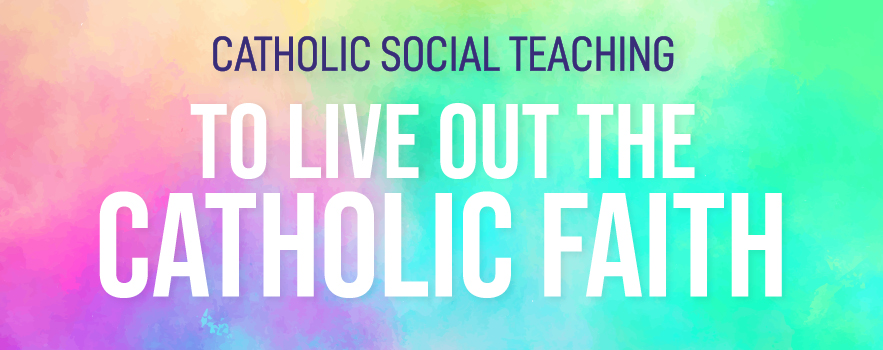No products in the cart.

Two weeks ago, we learned how we can show mercy as the Church teaches by recognising the God-given dignity in every person. On that weekend, Pope Francis travelled to Iraq, a first for a Pope. A well-known Catholic journalist called it “the riskiest and most improbable Papal trip”. On top of the pandemic crisis, there were security fears given the deadly suicide bombings in Baghdad, Iraq’s capital city, earlier in the year. The Pope is also suffering from a painful nerve condition. Yet, he made the trip anyway.
The Holy Father wanted to remind the world that the people of Iraq, regardless of their religious traditions, are our brothers and sisters still suffering from years of war and violence. As humans, they too have been endowed with an inalienable dignity by God, and they must be helped to live with that dignity. He also wanted to give hope to the Iraqi Christian community, one of the world’s most ancient, to persevere in their efforts to rebuild in the land of Abraham. In short, the dangerous trip was made because Pope Francis wanted to show solidarity with the people of Iraq.
But what is solidarity? In his 1987 encyclical Sollicitudo rei socialis, St John Paul II described it as “not a feeling of vague compassion” but “a firm and persevering determination to commit oneself to the common good”, which is “the good of all and of each individual”. This is a key principle of the Catholic Social Teaching. If every person is created in the image of God and we are all children of God, it follows that we are all responsible for the good of all our brothers and sisters.
As Catholics in Singapore, there are many ways to show solidarity with the poor and suffering. We can make meaningful donations and participate in community initiatives for those in need in our society. However, the Pope’s demonstration of radical solidarity with the people of Iraq can teach us two important lessons.
The first is the importance of presence. The Holy Father could have preached from the safety of his home in the Vatican, but his message would not have been as powerful. If solidarity is about determined perseverance for the good of our brothers and sisters, it follows that we must do our best to be together with them when we show them mercy, and to try to do so in person whenever it is possible and safe. Difficult as it may be during this time of pandemic, being present to others even while socially distanced is also an act of solidarity, especially for those more vulnerable to Covid-19, e.g. the elderly.
The second lesson is that our brothers and sisters are not only those who belong to our immediate communities. Foreigners, especially vulnerable migrant workers, are also the children of God. Thus, we should consider supporting national and communal initiatives for vulnerable migrants. At the same time, whenever possible, we need to try going beyond our comfort zones by personally extending our friendship to them in solidarity.
In this Sunday’s Gospel, Jesus said, “And I, when I am lifted up from the earth, will draw all people to myself” (John 12:32). Jesus did not say he would draw only some groups of people – He said all. If we are to be Jesus’ disciples, we are called to be in solidarity with all. And small acts of solidarity are enough, if they are done with great love.
First published in Catholic News. Reprinted with permission.
